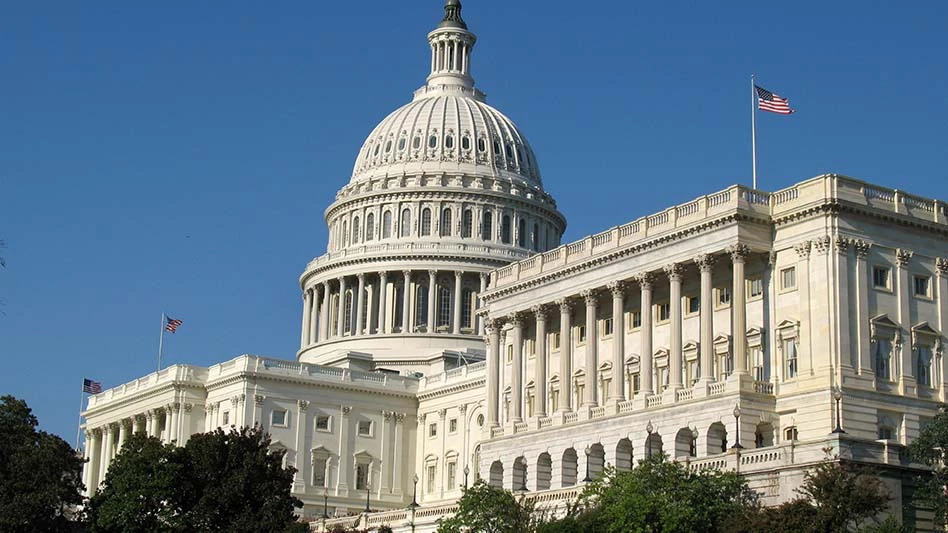
Andrea Izzotti | www.istockphoto.com
The U.S. House of Representative voted unanimously Oct. 1 to pass the Save Our Seas (SOS) 2.0 Act, bipartisan legislation introduced by Sens. Sheldon Whitehouse of Rhode Island, Dan Sullivan of Alaska and Bob Menendez of New Jersey designed to address the plastic debris threatening coastal economies and harming marine life. SOS 2.0 builds on the Save Our Seas Act introduced by Sens. Whitehouse and Sullivan and signed into law by President Trump in October 2018.
The Save Our Seas 2.0 Act consists of three main pieces:
- strengthening the United States’ domestic marine debris response capability with a Marine Debris Foundation, a genius prize for innovation and new research to tackle the issue;
- enhancing global engagement to combat marine debris, including formalizing U.S. policy on international cooperation, enhancing federal agency outreach to other countries and exploring the potential for a new international agreement on the challenge; and
- improving domestic infrastructure to prevent marine debris through new grants for and studies of waste management and mitigation.
Each of the bill’s components was reviewed and passed by a committee of jurisdiction – the Senate Commerce, Science and Transportation Committee, the Senate Foreign Relations Committee and the Senate Environment and Public Works (EPW) Committee.
The bill also calls for a report on economic incentives designed to spur new end markets for recycled plastics within a year from the date the legislation is enacted. It calls for the Environmental Protection Agency (EPA) administrator to submit to Congress "a report describing the most efficient and effective economic incentives to spur the development of additional new end-use markets for recycled plastics, including plastic film, including the use of increased recycled content by manufacturers in the production of plastic goods and packaging."
It also calls for the EPA administrator to coordinate with the Interagency Marine Debris Coordinating Committee and the National Institute of Standards and Technology to conduct a study on minimizing the creation of new plastic waste within two years of the enactment of the legislation. That report must include an estimate of the current and projected U.S. production and consumption of plastics, by type of plastic, including consumer food products; an estimate of the environmental effects and impacts of plastic production and use in relation to other materials; an estimate of current and projected recycling rates of plastics by type; an assessment of opportunities to minimize new plastic waste by reducing, recycling, reusing, refilling, refurbishing or capturing plastic that would otherwise be part of a waste stream; and an assessment of what postconsumer recycled content standards for plastic are technologically and economically feasible, and the impact of the standards on recycling rates.
Whitehouse says the vote “is an important step toward removing the plastic pollution that washes up on beaches and in fishing nets from Rhode Island to Alaska and eventually winds its way into the human food chain. I’m pleased that the Senate approved our bill unanimously, signaling strong support from both sides of the aisle and upholding the bipartisan Senate tradition of taking care of our oceans.”
“Our legislation aims to tackle this global challenge on three fronts—improving America’s ability to respond to marine debris events and clean up waste, working toward international cooperation and agreements with nations responsible for the majority of trash entering the oceans and exploring new, innovative ways to manage and even reuse plastic waste,” Sullivan says.
Menendez, the ranking member of the Senate Foreign Relations Committee, says, “This legislation takes important steps to protect our coastal waters that support everything from fishing and recreation to trade through our ports and harbors. I am committed to continue working with my colleagues on both sides of the aisle to make sure this bill is signed into law as soon as possible.”
In response to the passage of SOS 2.0, Washington-based Plastics Industry Association (Plastics) President and CEO Tony Radoszewski says, “We applaud the U.S. House of Representatives for passing the Save Our Seas 2.0 Act. It is a testament to the bipartisan agreement that we all need to do more to protect our oceans. The plastics industry and its more than 1 million American workers strongly support this legislation and applaud the work of its sponsors Sens. Dan Sullivan and Sheldon Whitehouse and champions in the House, Reps. Suzanne Bonamici and Don Young.”
He adds that Sullivan and Whitehouse will speak at the Global Plastics Summit (GPS) later this month about the Save Our Seas 2.0 Act and marine debris cleanup and prevention. “We’re honored to welcome the senators to the summit, and we look forward to building on this momentum and continuing to find innovative approaches to advancing our shared sustainability goals,” Radoszewski says.
The Institute of Scrap Recycling Industries (ISRI), also based in Washington, also has acknowledged the passage of the bill.
“ISRI and its members recognize the importance of protecting oceans and waterways and the enormous challenge of cleaning decades-worth of plastic debris,” says ISRI Vice President of Advocacy Adina Renee Adler. “It is incumbent upon all of us to help in this important endeavor of saving our seas for generations to come. We look forward to being a part of discussions that lead to innovative solutions.”
Latest from Recycling Today
- GFL Environmental Inc. to sell majority stake in Environmental Services business to Apollo, BC Partners
- SPR launches automated bifacial solar panel recycling line
- MBA Polymers UK offers ABS to global market
- Tariffs likely rising on inbound steel, aluminum and copper
- Carpet recycling fees to rise in California
- CMC suffers losses in late 2024
- Nonferrous recyclers: Where do you rank?
- DTG Recycling faces $3.3M penalty from Washington Utilities and Transportation Commission





